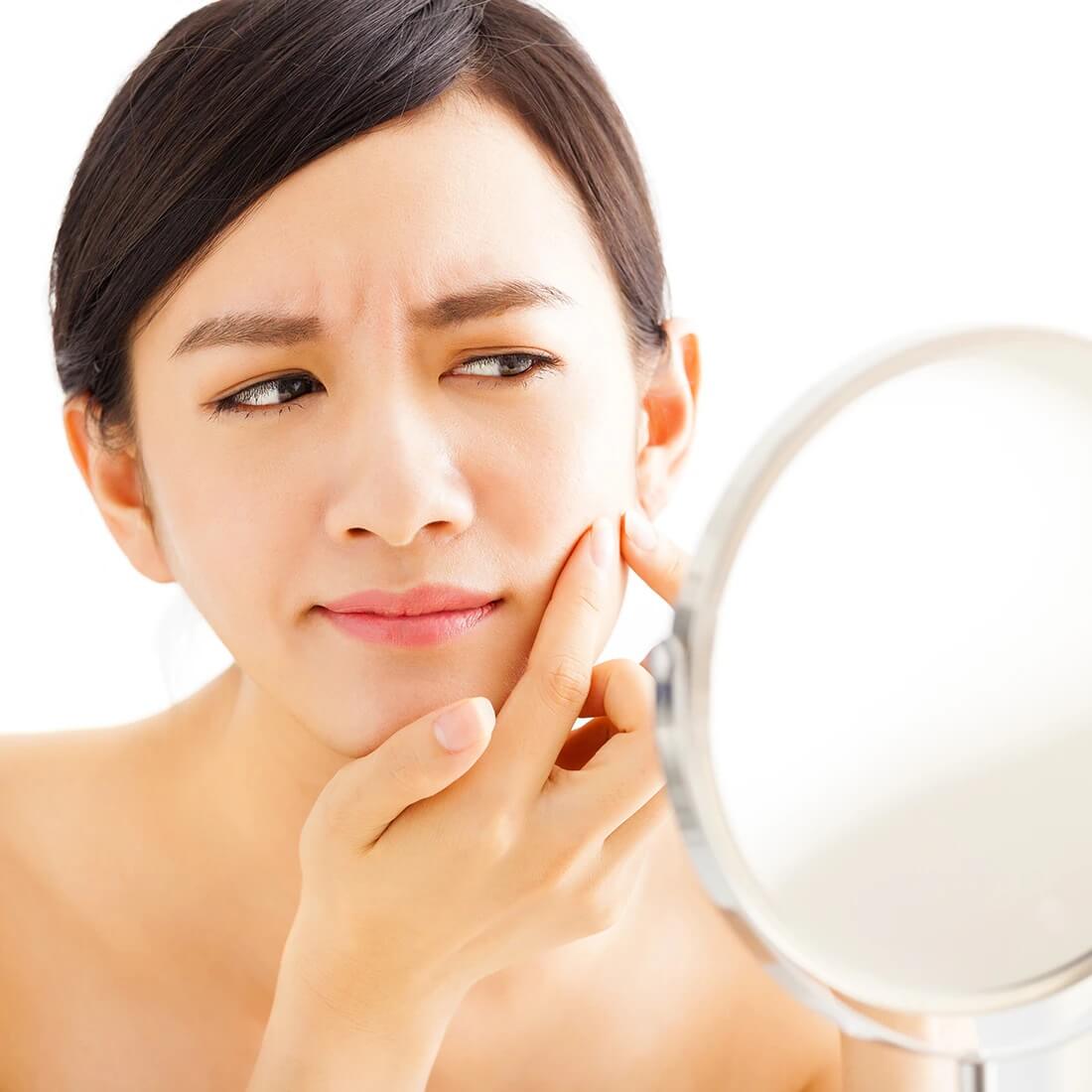April is recognized as National Stress Awareness Month, and there is no better time consider the impact of stress on skin concerns and overall skin health.
There is more and more research about the correlation between stress and skin health —now, more than ever. To that end, Rodan + Fields’ founders Dr. Katie Rodan and Dr. Kathy Fields published an eight-week study on the impact of skincare on cortisol (the stress hormone) levels.
Can stress cause you to break out?
The study: “Improvements in acne-prone skin quality correlate with a reduction in saliva cortisol levels after use of an 8-week 3-step topical regimen”
The study uncovered the mental health ramifications of adult acne, and found that following a three-step skincare routine can dramatically reduce levels of stress levels. A team of experts, including Rodan + Fields brand founders Dr. Katie Rodan and Dr. Kathy Fields, studied 30 acne-prone women in the age range of 18 to 45, who used a skincare regimen including antioxidants, prebiotics, electrolytes and SPF twice a day.
Rodan + Fields developed the Multi-Med Therapy approach, the right ingredients in the right formulations used in the right order, to deliver visible results you can see and feel. Over many years of testing and assessing consumer input, Dr. Katie Rodan and Dr. Kathy Fields found that having a three- or four-step routine is optimal in terms of treating skin concerns and improving skin health. For this study, Dr. Katie Rodan and Dr. Kathy Fields didn’t provide any additional guidelines beyond their standard recommendation they have with all of Rodan + Fields Regimens. The participants used a three-step Regimen.
The Results of the Study
The results found that participants’ cortisol decreased by about 83%. In addition, the participants felt 76% more confident taking a selfie compared to 53% at the beginning of the study. Many reported being able to wear less makeup, as their skin looked better and said their “skin looks as good as it feels.”
So, we know that stress can leave its mark, literally and figuratively on your skin. Here are some of the key ways that stress can affect skin and what you can do to alleviate it.
If your skin isn’t looking its best and you’re stressed, ask yourself the following questions. Are you:
1. Not sleeping enough?
When you’re not sleeping at least eight hours per night, the restorative function of your skin can’t be completed. Having a consistent nighttime skincare routine is important when it comes to having healthy, youthful looking skin. However, your skincare routine is most effective with proper sleep. Lifestyle changes can also help with better skin regeneration. Checking in with yourself and assessing whether you’re getting enough sleep can make that difference. Another sleep-inhibiting factor is blue light exposure. Switch off your computers and TV an hour or so before bed, or better yet, avoid having these electronics in your bedroom if you can. Alcohol consumption can lead to a less-than-glowing complexion the next morning. Drinking in moderation will have an impact on how your skin looks.
2. Eating sugar?
Eating sugar can impact your cortisol levels, which can lead to an overproduction of sebum, or oil in your skin glands, which can cause acne breakouts. What foods should we opt for and which should we avoid? “I recommend an anti-inflammatory diet, which means low-carb and no sugar as they directly cause skin inflammation,” Dr. Kathy Fields says. “It is so important to get to a target healthy weight and maintain it by implementing a reasonable diet that fits your lifestyle and one that you can practice long-term,” she adds. Exercise is another critical component. The best foods to eat to protect your skin from aging are antioxidants (think berries), carotenoids (think apricots and carrots) and greens (think spinach and broccoli). Learn more about the best foods to achieve clear and healthy skin.
3. Dealing with bags under your eyes?
It’s hard to get that glow when you’re not getting the right amount of sleep. Bags under your eyes is a direct result of sleep deprivation. Your skin has its own circadian rhythm, which is a 24-hour cycle that’s part of the body’s internal clock. Think of it as an operating system: it runs in the background to carry out essential functions and processes. At night, your skin absorbs products better, as it’s thinner at that time and undergoes the cell renewal and skin regeneration process. During your nightly eight hours, you give your skin a chance to replace old skin cells and make room for the new ones. So, don’t skimp on that time for the sake of your skin! It’s important to consistently apply your skincare routine every morning and night—including face serum (like one with Retinol, Hyaluronic Acid or Vitamin C) to avoid acne in addition to fine lines, wrinkles and aging in general. Consider a high quality anti-aging eye cream to visibly reduce key signs of aging, such as fine lines, wrinkles, sagging and crow’s feet.
4. Lips sore?
You may be surprised by this stress-related result. But it happens: people tend to bite their lips when they’re stressed out—no matter the weather conditions. Stress, fear and anxiety are some of the reasons those who are prone to lip biting may give in to the urge. Dry lips can also be uncomfortable. Make sure to keep lips hydrated by using a balm or serum daily.
5. Dealing with skin irritations?
Stress can lead to skin irritations resulting from picking at acne or scratching at your skin. If you’re stressed, you might also skimp on your skincare routine, which can also aggravate skin issues.
Things to Remember When You’re Feeling Stressed
Think of your skincare Regimen as your daily ritual – a few moments each day where you can practice self-care. Carve out time each morning and night to treat yourself (and your skin!) to some much-needed TLC and ideally, some stress relief.
Acne & BreakoutsDry SkinDull & Tired SkinMulti Med TherapySPF





